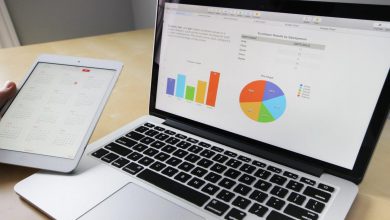
Pricing is a critical component of any business, as it not only affects revenue but can also have a significant impact on consumer behavior. Consumers are highly sensitive to pricing, and many factors can influence their purchasing decisions. In this blog post, we will discuss how price affects consumer behavior and the psychology behind different pricing strategies.
1. The Role of Perception:
When it comes to making purchasing decisions, how consumers perceive price is an important factor. People are often hesitant to spend more money on a product, even when it has better value or quality. This hesitance is rooted in a psychological process that affects many aspects of consumer behavior.
The role of perception and psychology in pricing cannot be understated. Studies have shown that people can be easily swayed by the perceived value of a product as well as its price tag. If people think something is expensive, they may not purchase it even if it offers more features or better performance than cheaper alternatives. On the other hand, if something appears to offer great value for money – regardless of its actual cost – then customers may be more willing to part with their cash. Consequently, understanding perception and psychology when setting prices is essential for businesses wanting to maximize sales and boost profits.
2. The Power of Anchoring:
Anchoring, a concept of psychology pricing, is one of the most powerful forms of persuasion in marketing. It’s based on the idea that our decisions are heavily influenced by the first piece of information we receive when making a purchase. When it comes to price, consumers tend to judge all other prices relative to this original number and assign it more weight than any subsequent pieces of information. This phenomenon has had an immense impact on consumer behavior and marketers have begun capitalizing on this concept in various ways.
Some common examples include dramatic discounts at clothing stores or loss-leader items placed in supermarket checkout lanes. These strategies create an anchor point for customers and often lead to larger purchases than originally intended as shoppers become fixated on the savings associated with those special offers.
3. The Impact of Discounts and Sales:
Discounts and sales are a great way to increase sales, draw attention to products, and encourage consumers to make purchases. Price affects consumer behavior in many ways, as it has the power to influence how people perceive a product or service. A successful price psychology strategy can be achieved by offering discounts and sales.
When discounts and sales are offered they create a sense of urgency that encourages shoppers to buy quickly before the offer expires. This leads to impulse buying where customers purchase items without researching them thoroughly beforehand. Additionally, when customers see discounted prices they often assume that the item is of higher quality than its regular price counterpart since it’s more expensive than usual. Discounts help reduce psychological barriers for potential buyers such as perceived risk or low perceived value because people don’t feel like they’re overpaying for something if it is on sale.
4. The Effect of Pricing on Brand Perception:
Price can have a major effect on how consumers perceive a brand. Businesses need to understand the psychology of pricing, as it can significantly influence consumer behavior. When prices are set too low, customers may assume that the product or service is of inferior quality or not worth their money. Conversely, when prices are too high, customers may think that the product or service is exclusive and unattainable.
The price of a product or service can also affect customer trust. Customers who feel they are getting good value for their money will be more likely to remain loyal and come back in the future if they recognize they are getting good deals on quality items. On the other hand, customers may decide to look elsewhere if they don’t think that what is being offered matches its price tag.
5. The Role of Behavioral Economics:
Behavioral economics is the field of study that examines how people make decisions and how their behavior is influenced by cognitive biases. It focuses on why people act in certain ways, and it has become an increasingly popular topic in recent years as companies seek to understand consumer behavior. One of the key topics in behavioral economics is price affects consumer behavior. Companies use pricing strategies to influence consumers’ decision-making process and encourage them to purchase goods or services. Psychology pricing, for example, involves using psychological tactics such as displaying prices ending with .99 or offering discounts for multiple purchases to incentivize customers for buying a product or a service. Understanding how price affects consumer behavior can help businesses maximize profits by setting the right prices for their products and services. By gaining insights into what motivates consumers when it comes to price, companies can adjust their pricing strategies accordingly and improve customer satisfaction at the same time.
Conclusion
Pricing is a complex and dynamic component of any business, and understanding how it affects consumer behavior is critical for success. By leveraging the psychology behind pricing strategies, businesses can create pricing models that resonate with their target audience and drive revenue. A thorough understanding of consumer behavior, perception, and biases is essential for developing effective pricing strategies.


